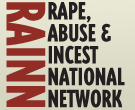|
National Association of Adult Survivors of Child Abuse
National Association of Adult Survivors of Child Abuse
~~~~~~~~~~~~~~~~~~~~~~~~~~~~~~~~~~~~~~~~~~~~~~
NAASCA Highlights
EDITOR'S NOTE: Occasionally we bring you articles from local newspapers, web sites and other sources that constitute but a small percentage of the information available to those who are interested in the issues of child abuse and recovery from it.
We also present original articles we hope will inform the community ... |
HOME
why we started this site
|
RECOVERY
together we can heal
|
RESOURCES
help stop child abuse
|
ABOUT
a little about us
|
CONTACT
join us, get involved
|
.

|
|
Reactions of Adult Survivors of Childhood Sexual Assault
from RAINN -- (adapted from materials provided by the Texas Association Against Sexual Assault)
CAVEAT: The following descriptions are meant to serve as a general guideline for how a victim of sexual assault might react in a time of pain or crisis. It is important to recognize, however, that each victim of sexual assault will have his or her own life experiences and personality that will influence how he or she react to the assault. |
Reactions of Adult Survivors of Childhood Sexual Assault
There are many reactions that survivors of rape and sexual assault can have. But for adult survivors of childhood abuse there are reactions that may either be different or stronger than for other survivors. These include:
Trouble Setting Limits/Boundaries
- Because your personal boundaries were invaded when you were young by someone you trusted and depended on, you may have trouble understanding that you have the right to control what happens to you.
Memories/Flashbacks/PTDS
- Like many survivors, you may experience flashbacks.
Inappropriate Anger
- This is often the most difficult emotion for an adult survivor of childhood sexual abuse to get in touch with.
.
- As a child your anger was powerless and had little to no effect on the actions of your abuser. For this reason you may not feel confident that you anger will be useful or helpful.
Trouble with Grieving/Mourning
- Being abused as a child means the loss of many things- childhood experiences, trust, innocence, normal relationship with family members (especially if the abuser was a family member).
.
- You must be allowed to name those losses, grieve them, and then bury them.
Feelings of Guilt, Shame, and Blame
- You may carry a lot of guilt because you may have experienced pleasure or because you did not try to stop the abuse.
.
- There may have been silence surrounding the abuse that led to feelings of shame.
.
- It is important for you to understand that it was the adult who abused his/her position of authority and should be held accountable, not you.
Inability to Trust
- Learning to trust again may be very difficult for you.
.
- You may find that you go from one extreme to the other, not trusting at all to trusting too much.
Developing Coping Skills
- You have undoubtedly developed skills in order to cope with the trauma.
.
- Some of these are healthy (possibly separating yourself from family members, seeking out counseling, etc.)
.
- Some are not (drinking or drug abuse, promiscuous sexual activity, etc.)
Low Self-esteem/Isolation
- Low self-esteem is a result of all of the negative messages you received and internalized from your abusers.
.
- Because entering into an intimate relationship involves trust, respect, love, and the ability to share, you may flee from intimacy or hold on too tightly for fear of losing the relationship.
Confused/Uncomfortable Sexuality
- You likely have to deal with the fact that your first initiation into sex came as a result of sexual abuse.
.
- You may experience the return of body memories while engaging in a sexual activity with another person. Such memories may interfere in your ability to engage in sexual relationships which may leave you feeling frightened, frustrated, or ashamed.
|
HOME
why we started this site |
|
|
|
|
|
|